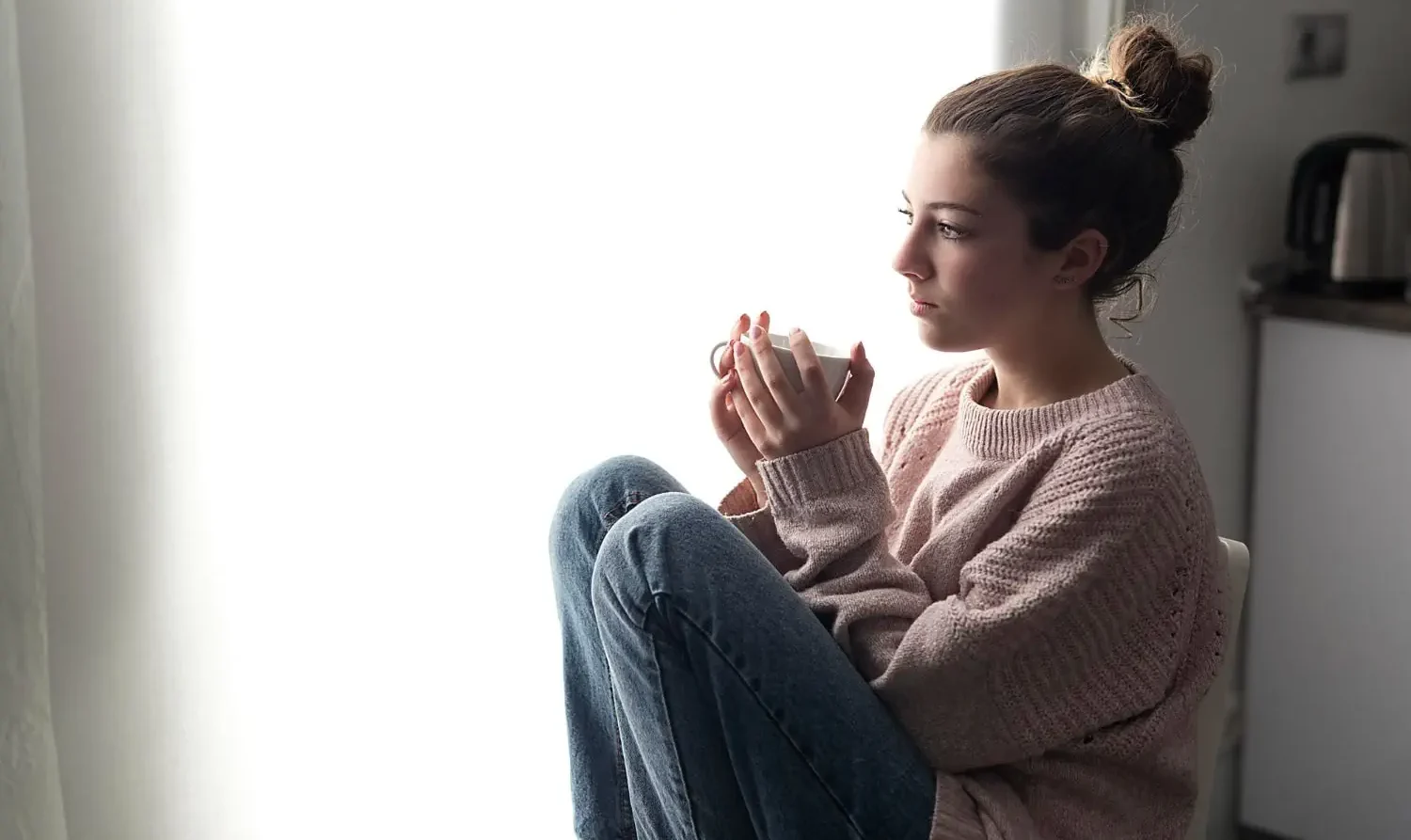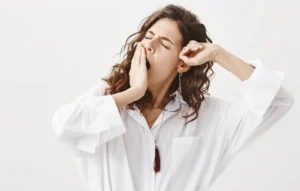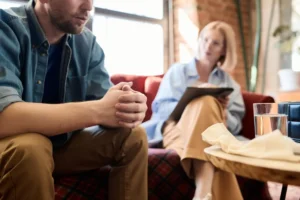We offer medical detox and multiple addiction treatment options in our
luxury treatment centres in Port Hope, Cobourg, and Ottawa.
How Alcohol Triggers or Masks Anxiety Symptoms
Alcohol and anxiety share a relationship that defies simple logic. Drinks promise relaxation but frequently deliver the opposite. Roughly 25% of people seeking treatment for panic disorder have histories tied to alcohol dependence. The connection runs deeper than most realize. Your brain chemistry shifts with every glass, creating effects that persist long after the buzz fades. Many Canadians find themselves trapped between two problems that feed each other.
Key Takeaways
- Alcohol's calming effects come from boosting GABA in your brain, but this temporary relief gets followed by a rebound that intensifies anxiety symptoms beyond your baseline
- That anxious, dreadful feeling the morning after drinking has a biological cause—your brain working to rebalance chemicals while you experience withdrawal
- Using alcohol to manage anxiety creates a pattern where each drink makes the next episode worse, potentially leading to alcohol addiction
- Both during drinking and after, panic attacks can strike due to fluctuating blood alcohol levels and depleted calming neurotransmitters
- Recognizing these connections helps you find healthier coping strategies that address anxiety without creating new problems
Can Alcohol Cause Anxiety?

Yes, alcohol both creates new anxiety and amplifies existing conditions through measurable changes in your brain chemistry. The paradox hits hard — that same drink that melts away stress eventually manufactures more of it.
The Initial Masking Effect
Drinking alcohol produces a depressive effect on your central nervous system. That first drink triggers a sedative feeling, decreasing inhibitions, and sometimes creating a sense of euphoria. These sensations appear to cure worry—anxious thoughts quiet down, social situations feel manageable, and tension melts away. For someone dealing with social nervousness, a couple of drinks can transform an uncomfortable gathering into something enjoyable.
This temporary relief explains why so many people reach for alcohol when stress hits. The brain's reward system lights up, teaching you that drinking equals feeling better. Unfortunately, this lesson proves devastatingly wrong.
Why the Relief Backfires
The positive effects from alcohol wear off quickly and trigger even worse symptoms of anxiety than you started with. Someone who self-medicates with drinking often tries maintaining those good feelings by consuming more and more. This pattern leads to significant health problems—liver damage, brain changes, heart issues — and can progress toward alcohol addiction.
Chronic consumption creates dependence, where you struggle in situations without drinking first. Among Vietnam Veterans seeking treatment for PTSD, up to 80% have problems with alcohol, demonstrating how frequently anxiety conditions and drinking problems become entangled. Heart palpitations rank among the most common physical symptoms people experience, while many suffer panic attacks as well.
The chemical you're using to manage anxiety becomes the very thing intensifying it—a vicious cycle where each attempt at relief digs the hole deeper.
How Alcohol Can Trigger Anxiety Symptoms
Feeling overwhelmed by anxious thoughts might push you toward a drink. That social gathering feels less intimidating after a beer, right? The embarrassment or shame around anxiety drives many people to self-treat rather than seek proper help. Research from the University of Minnesota's psychiatry department found a significant correlation between high anxiety levels and alcohol abuse — one of the most consistently documented observations in psychology. What starts as temporary relief spirals into something far more damaging.
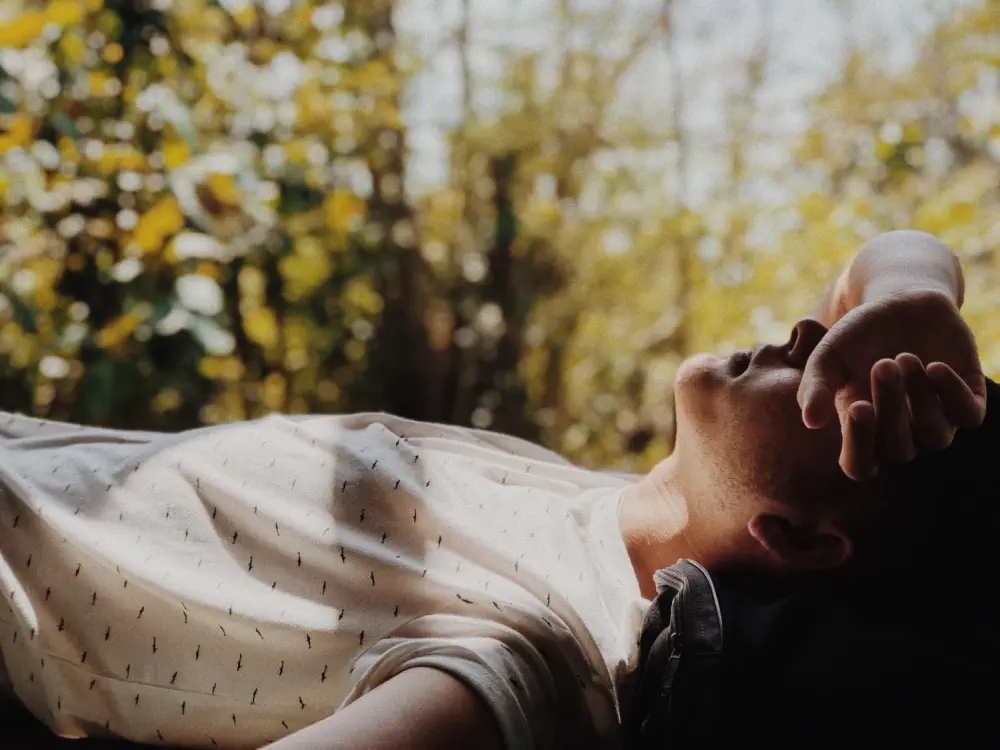
The GABA Connection
Your brain relies on a chemical called GABA (gamma-aminobutyric acid) to create feelings of calm. Think of GABA as your nervous system's natural brake pedal—it slows racing thoughts and eases tension.
Alcohol floods your brain with GABA initially. You feel relaxed, worries fade, inhibitions drop away. This explains why that first drink appears so effective for your nerves. Your brain notices this artificial GABA surge and responds by blocking its own GABA receptors. It's trying to maintain balance, not realizing you're creating an artificial situation.
When alcohol wears off, you're left with fewer functioning GABA receptors than you started with. Your natural calming system can't work properly anymore. The anxiety after drinking hits harder than your original nervousness—your brain's protective mechanisms have been compromised.
Physical Reactions That Amplify Anxiety
Beyond brain chemistry, alcohol triggers a cascade of physical changes that mimic or worsen anxiety symptoms:
- Dehydration leaves you dizzy and jittery, with a racing heart that feels like panic
- Blood sugar crashes create shakiness and intense restlessness that can last for hours
- Sleep disruption prevents the restorative rest your brain needs to regulate emotions
- Hormone disruption raises serotonin levels temporarily before they crash lower than baseline, creating emotional lows
- Increased heart rate and physical tension mimic panic attack sensations, potentially triggering actual panic
These reactions often peak the morning after drinking, creating what many call "hangxiety"—that dreadful, anxious feeling during a hangover. Your body's attempting to rebalance itself while simultaneously dealing with withdrawal, even from just one night of drinking.
What is the Link Between Alcohol and Anxiety?
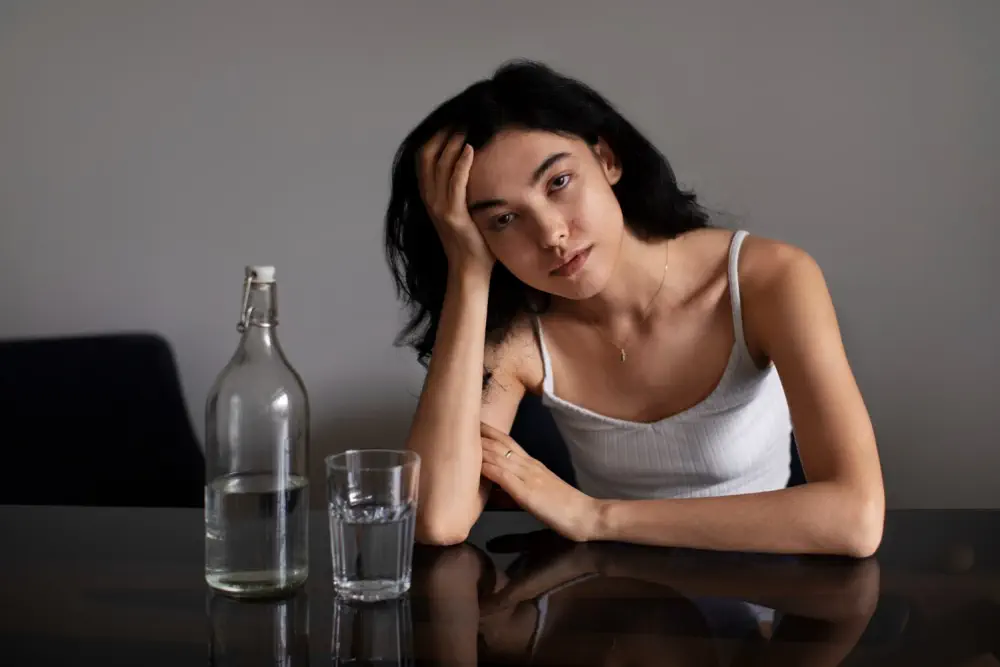
The connection runs both directions—alcohol and anxiety feed each other in a cycle that tightens with every drink. Anxiety pushes people toward alcohol for relief, while alcohol use creates or worsens anxiety symptoms. Neither causes the other exclusively, but they reinforce each other relentlessly.
Why People Turn to Drinking for Anxiety Relief
Social situations trigger particularly strong drinking patterns. Someone dealing with social anxiety finds that a couple of drinks make conversations flow easier, eye contact feels less threatening, and self-consciousness fades. This immediate relief creates powerful learning in the brain—alcohol equals comfort.
The problem emerges quickly. Your body adapts to alcohol's effects, requiring larger amounts to achieve the same calming sensation. What started as one drink becomes two, then three, then a dependency where facing social situations sober feels impossible. About 20% of people with social anxiety also struggle with alcohol dependence.
The Panic Attack Connection
Panic attacks after drinking strike when your blood alcohol level drops. Your brain's fight-or-flight response activates as neurotransmitters rebalance, triggering:
- Racing heart and chest tightness
- Shortness of breath or feeling smothered
- Dizziness and feeling detached from reality
- Intense fear that something terrible will happen
A panic attack hangover adds psychological torment to physical misery. You might wake up with fragmented memories from the night before, fueling worry about what you said or did. The uncertainty itself becomes a trigger, creating anxiety that feeds the urge to drink again—completing the vicious cycle that traps so many people.
This pattern explains why treating one condition requires addressing both. Stopping drinking helps reduce anxiety, while managing anxiety properly eliminates the perceived need for alcohol.
Healthier Ways to Manage Anxiety Without Alcohol
Breaking the drinking-to-cope pattern requires replacing alcohol with strategies that actually address anxiety at its source. These alternatives work better long-term and won't trap you in worsening cycles.
Immediate Relief Techniques
When anxiety hits hard and you feel the urge to drink, try these instead:
- Breathing exercises slow your heart rate within minutes—inhale for four counts, hold for four, exhale for six
- Physical movement burns off stress hormones flooding your system during anxious moments
- Cold water on your face or wrists triggers a calming response in your nervous system
- Calling someone you trust provides a connection without chemical numbing
- Engaging your senses by naming five things you see, four you can touch, and three you hear grounds you in the present
Building Long-Term Resilience
| Approach | How It Helps |
| Cognitive Behavioural Therapy | Identifies thought patterns driving anxiety and teaches practical responses |
| Regular exercise routine | Produces natural anxiety-reducing chemicals in your brain |
| Sleep consistency | Allows your nervous system to regulate properly each night |
| Meditation practice | Strengthens your ability to observe anxious thoughts without reacting |
| Proper nutrition | Stabilizes blood sugar and supports neurotransmitter production |
When You Need Professional Help?
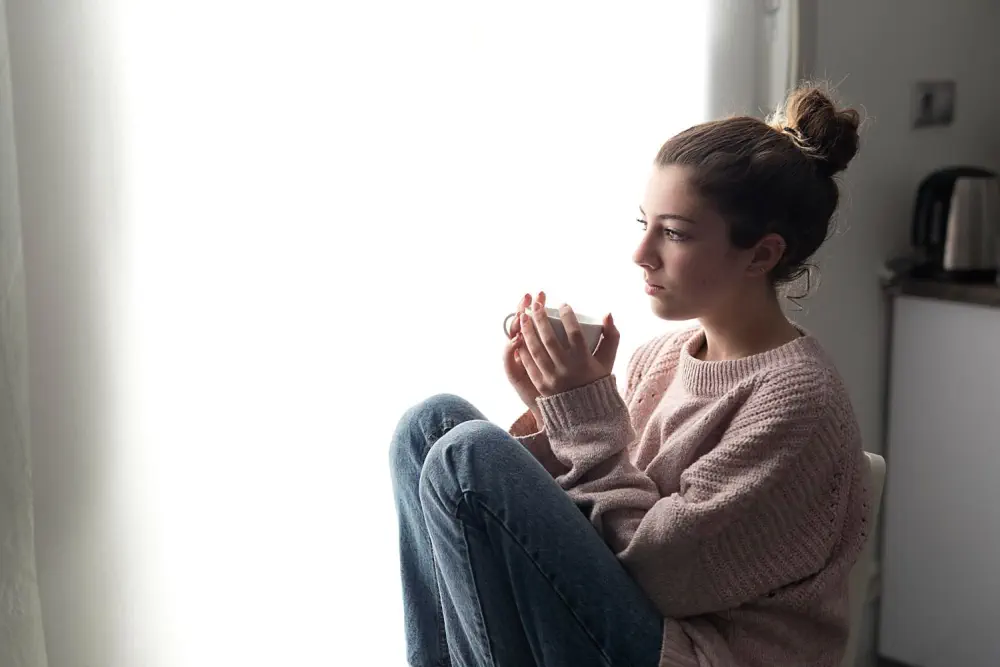
If your drinking has progressed to alcohol addiction, managing anxiety becomes exponentially harder. We at the Canadian Centre for Addictions provide treatment addressing both conditions simultaneously—you can't effectively treat anxiety while still dependent on alcohol, and stopping drinking without anxiety support often leads to relapse.
Professional intervention becomes necessary when you find yourself unable to face situations without drinking first, when anxiety interferes with daily functioning, or when attempts to cut back consistently fail. Treatment works, and you don't have to figure this out alone.
FAQ
Why do I feel more anxious the day after drinking?
Your brain compensates for alcohol's depressive effects by blocking GABA receptors, leaving you with less natural calming ability when the alcohol wears off. Dehydration, blood sugar crashes, and disrupted sleep compound this chemical rebound.
Can drinking alcohol cause panic attacks even if I don't have an anxiety disorder?
Yes, alcohol triggers panic attacks in people without existing anxiety disorders through its effects on brain chemistry and physical symptoms. The fight-or-flight response activates as your blood alcohol level drops, causing intense fear and physical distress.
How long does anxiety last after quitting alcohol?
Acute withdrawal anxiety typically peaks within the first week and improves over 2-4 weeks, though some people experience lingering symptoms for several months. The duration depends on how long you've been drinking, how much you consumed, and your individual brain chemistry.
Is it safe to drink alcohol if I take anxiety medication?
No, mixing alcohol with anxiety medications creates dangerous interactions that can cause extreme drowsiness, impaired coordination, and respiratory problems. Always consult your doctor before drinking while on any psychiatric medication.
How much alcohol is too much if I have anxiety?
Canadian guidelines recommend no more than two standard drinks per day for men and one for women, but any amount can trigger anxiety symptoms in sensitive individuals. Track how you feel after drinking to identify your personal threshold.

